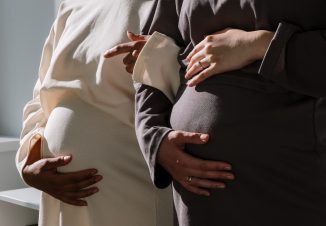
The Court of Final Appeal (‘CFA’), Hong Kong’s highest court, has ruled that it is unjustified indirect discrimination to refuse a male government employee access to spousal benefits for his husband and deny the couple the ability to elect for joint assessment of salaries tax.
This decision was issued a year after the same court gave its landmark ruling in the case of QT v Director of Immigration, which allowed same-sex partners to apply for dependant visas.
What happened?
Leung Chun Kwong (Angus) started working as an immigration officer with the Hong Kong government in 2003. He married his partner, Scott Adams, in 2014 in New Zealand, where same-sex marriage is legal.
Benefits Decision
After getting married, Angus confirmed to his employer that his marital status had changed and that his husband, Scott, should therefore be entitled to enjoy the medical and dental benefits that are extended to a civil servant’s spouse. He had previously notified them of his intention to get married. The government informed him (both before and after his wedding) that his same-sex marriage with Scott was not a marriage within the meaning of Hong Kong law, and therefore he was not entitled to spousal benefits.
Tax Decision
Angus also tried to file his income tax return online and elect to have his tax jointly assessed. However, he was unable to enter Scott’s name as they both had the same prefix, ‘Mr’. Angus raised the issue with the Inland Revenue Department, and they told Angus that although the Inland Revenue definition of ‘marriage’ does not expressly exclude same-sex couples, it does make reference to a marriage between a ‘man’ and a ‘wife’, where husband means a married man, and wife means a married woman. Consequently, parties in a same-sex marriage cannot be husband and wife.
Angus challenged both the Benefits Decision and Tax Decision and after a series of appeals and cross-appeals, the case came before the CFA. Angus claimed that the government had breached both the Basic Law and the Hong Kong Bill of Rights (which binds the government and public authorities and provides that all Hong Kong residents are equal before the law and that the law prohibits discrimination on any ground).
Outcome of the case
The government accepted that denying spousal benefits to a same-sex married couple and not allowing them to choose joint tax assessment constitutes indirect discrimination against same-sex couples on the ground of their sexual orientation, as they cannot get married lawfully under Hong Kong marriage laws, but only if this is not justified. In other words, the government’s argument rested on them being able to establish that the different treatment of same-sex couples was justifiable in these situations. They accepted that if they were unable to do this, it would constitute unlawful indirect discrimination.
The CFA considered the following questions in determining whether such differential treatment was justified.
Did the different treatment of same-sex couples pursue a legitimate aim?
Before considering the legitimate aim, the Court rejected the contention that the:
‘prevailing views of the community on marriage are relevant to identifying a legitimate aim and justification of differential treatment.’
The legitimate aim put forward by the government was, in essence, protecting (or not undermining) the concept and/or institution of marriage, and the unique status of marriage, defined as the voluntary union for life of one man and one woman to the exclusion of all others (‘Legitimate Aim’).
Was the treatment rationally connected to the Legitimate Aim?
The government’s case faced great difficulty over the question of how giving same-sex couples the right to spousal benefits and permission to choose joint assessment of salaries tax for would affect the institution of marriage.
The government’s position was that the Benefits Decision and the Tax Decision were rationally connected to protecting the Legitimate Aim. They relied upon the earlier judgment in the Court of Appeal that it would undermine the uniqueness of the status of marriage in society if same-sex couples could share in benefits or privileges that have long been exclusively associated with or enjoyed by married couples.
The CFA rejected this reasoning. The CFA concluded that the government was unable to justify the differential treatment for Benefits and Tax Decisions, making the following key observations:
‘It cannot logically be argued that any person is encouraged to enter into an opposite-sex marriage in Hong Kong because a same-sex spouse is denied those benefits or to joint assessment to taxation.’
Benefits Decision
The Government has a published policy stating that they are an equal opportunities employer. Government job advertisements state that the position is open to applications regardless of sexual orientation, and the government has adopted the Code of Practice against Discrimination in Employment on the Ground of Sexual Orientation. It is therefore difficult to see how the government could adhere to these policies dedicated to eliminating discrimination on the ground of sexual orientation, while denying married same-sex couples the same employment benefits that are available to married opposite-sex couples.
Tax Decision
The Court pointed out that the Inland Revenue Ordinance recognises polygamous marriage in that it extends the definition of ‘marriage’ to that between a man and his principle wife, suggesting that the right to choose joint tax assessment did not serve the purpose of promoting the traditional concept of marriage either.
What does this mean for employers and employees?
In light of the Tax Decision, the Inland Revenue Department has confirmed that it has now changed its internal rule book to allow same-sex married couples to apply for joint tax assessment. This applies equally to tax assessments submitted through the electronic filing system or in paper form. This will benefit any married same-sex couple wanting to choose joint assessment of salaries tax (the change applies only to same sex couples who are married; it does not apply to same sex civil partnerships who are still required to complete separate tax assessments).
The Benefits Decision, although only binding on the government and public authorities, should, in our view, be taken into consideration by private sector employers. Some multinational employers in Hong Kong already provide equal benefits to all employees irrespective of their sexual orientation and we anticipate that the Benefits Decision will make others follow suit. We would actively encourage all employers to review their policies and insurance schemes to ensure that they do not treat LGBTI+ employees differently to heterosexual employees.
This decision and the landmark QT decision clearly demonstrate that the Hong Kong Courts are moving towards recognising equality of rights for same-sex couples. The next challenge relates to civil partnerships for same-sex couples, as MK (a Hong Kong woman) is currently applying for judicial review of the ban on civil partnerships in Hong Kong.


